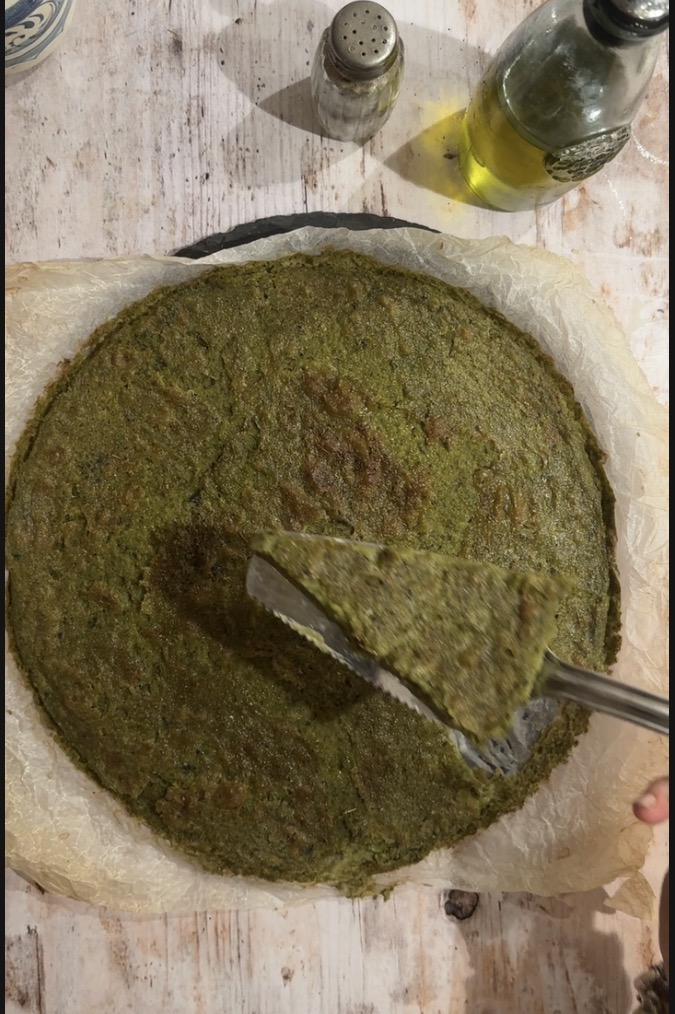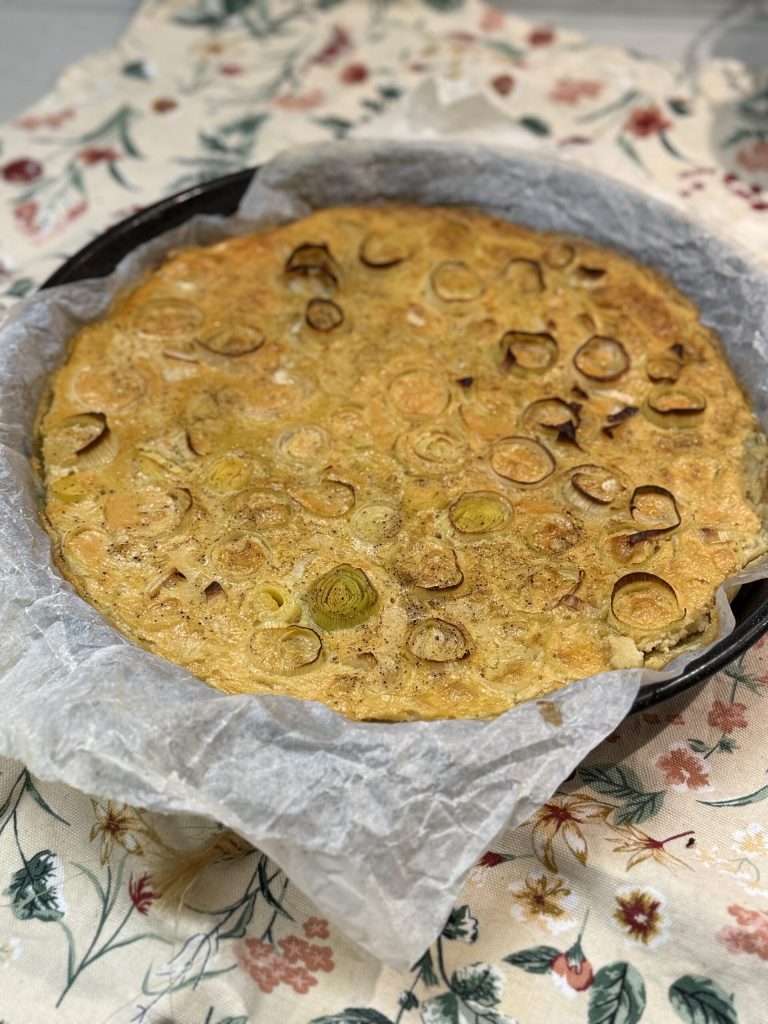The traditional Tuscan cecina is a humble dish typical of peasant cuisine that has relatives and different names not only in Tuscany but also in various parts of Italy: in Liguria (where it originated) it is known as farinata, in Livorno as 5 e 5 or chickpea cake, in Sardinia as fainè…in short, many names but the same preparation! The recipe I’m sharing here is from my dear friend Grazia, now rightfully part of my family recipe collection!
This traditional dish is naturally vegan, gluten-free, and has a low glycemic index. It’s perfect as a main course but also as an appetizer or a picnic dish. In short, it’s easy, versatile, and healthy! What more could you want! At the end of the article, I’ll show you how this recipe can be versatile and creative, follow me!
I suggest you check out these links for easy and traditional dishes:

- Difficulty: Very easy
- Cost: Very economical
- Rest time: 2 Hours
- Preparation time: 15 Minutes
- Cooking methods: Oven
- Cuisine: Italian Regional
- Region: Tuscany
- Seasonality: All seasons
Ingredients
The ingredients for traditional Tuscan cecina are economical and typical of humble peasant cuisine, not just Tuscan; legumes were the main source of protein, and milling them into flour allowed for more satisfying dishes suitable for social gatherings.
- 1 1/2 cups chickpea flour
- 2 1/2 cups water
- 1/3 cup extra virgin olive oil
- 1 1/2 tsp fine salt
- A few sprigs rosemary
- 1 pinch black pepper (optional)
Tools
- 1 Bowl
- 1 Baking Tray
- 1 Parchment Paper
- 1 Plastic Wrap
- 1 Whisk
Steps
Making the dough for traditional Tuscan cecina is very easy. The only thing to be careful about is mixing the flour with the water and the resting time. But let’s take it step by step and see the details.
Sift the chickpea flour into a bowl.

Add the salt and mix it very well with the chickpea flour using a hand whisk or a fork.

Start adding the water.

This step is perhaps the most difficult because it must be done gradually.

With the hand whisk, mix the first part of the water well to create a thick batter.

Add another part of water while mixing, to make the mixture softer.

Add more water. At this point, the mixture will start to become very liquid and fluid.

Finish with the last part of water and give it a final mix.

Slowly add half of the oil (40 g) while mixing.

Finish with a vigorous mix.

Cover with plastic wrap or (as in my case) a silicone lid.

Add a kitchen towel and let it rest at least 2 hours, stirring occasionally.

Wet the parchment paper under running water, squeeze it well, and place it on the baking tray to adhere.

Gently pour the batter into the tray.

The traditional Tuscan cecina is almost ready to be baked; just a few more steps!

Pour into the batter the oil that was set aside (40 grams).

Mix it gently with a fork to spread it over the entire batter.

Finish with the rosemary.

After preheating the oven to 350 degrees Fahrenheit, place the tray in the hot oven. Be very careful as the batter is really liquid and may spill out of the tray. Bake for 30/35 minutes or until a crust forms on the surface. Take it out of the oven and let it cool for at least half an hour. This will allow the cecina to firm up. Sprinkle with a little pepper before serving.

Storage and Tips
The traditional Tuscan cecina is perhaps better hours after cooking, as the flavors blend better. For this reason, it can be stored in the fridge for a couple of days covered. It will only need to be quickly reheated in a pan to make it crispy again. Cecina is perfect even as a filling for a sandwich (as they do in Livorno) besides being eaten on its own! If you liked this recipe, come tell me on Instagram!
FAQ (Frequently Asked Questions)
Can I add any ingredients to the traditional Tuscan cecina?
Sure, you can add any kind of vegetables. For example, I used the king of Tuscan tables, Kale. After cleaning a bunch, I blanched it and then pureed it with some of its water, replacing 200 of the total 600 g of water with this puree. Everything else remains unchanged. It’s a great complete dish!

If I don’t have chickpea flour, can I use other legume flour?
Any legume flour works, although it won’t be exactly “cecina”. For example, I used equal amounts of red lentil flour and before baking, I added two leeks cut into rings for an even more flavorful result!


